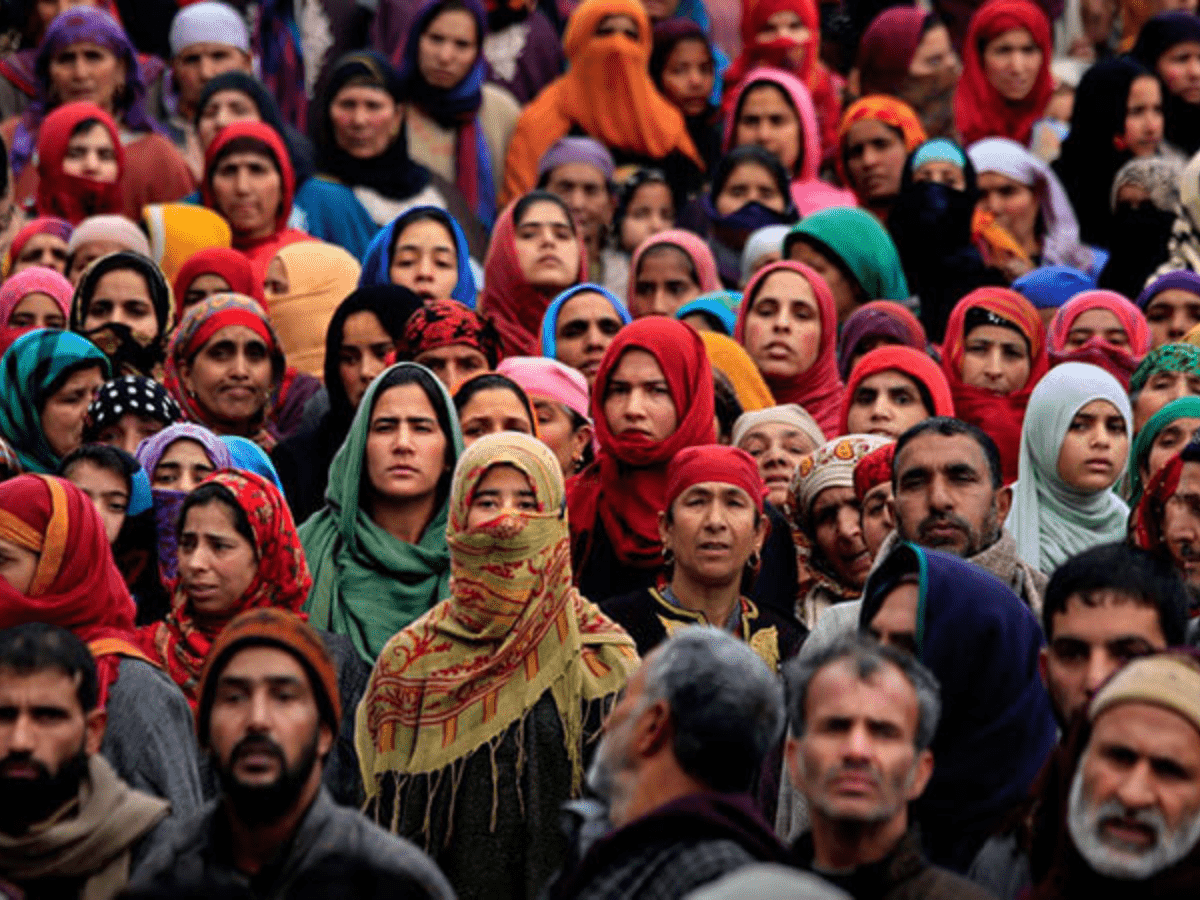
In the middle of campaign for Assembly elections in five states, Kashmir politics is taking a newer shape, in which the separatists of yesteryear are collaging under the banner of the parties that are more mainstream than the recognized pro-election political groups. Erstwhile separatist leaders, who were engaged in a campaign for separatism in Kashmir, drawing distinction between the idea of India and that of Kashmir, spotlighting barriers and differences, have started joining Apni Party, that stands for merger of the idea of Kashmir with that of India seeing both of them on the same page.
Separatism and mainstream were never indistinguishable in Kashmir because of the legacy of conflict it inherited since 1947 following Pakistani invasion of Jammu and Kashmir and the subsequent signing of the instrument of accession by Maharaja Hari Singh, last Dogra king, acceding the state to India amidst a full-fledged war. The legacy of conflict got traction owing to the UN resolutions on Kashmir, envisaging right to self-determination, asking India and Pakistan to hold UN monitored plebiscite to determine choice of the people of the state for the nation of their future. That conflict looms in few sections of society, and this had peaked during 1990s when Kashmir was witnessing and experiencing high scale of terrorism and counter terrorism on its soil. Pakistan backed terrorism sustained the narrative that the plebiscite proposition could be turned into a reality. The Indian view was that the use of military power and the divisions in the militant groups would help it to decimate the idea of separatism. This clash of military-oriented strategies only brought destruction and neither side achieved anything.
In the post-Article 370 abrogation era which began in August 2019, it was given out that separatism is over, and terrorism has bitten the dust because of zero-tolerance to terrorism assault on networks of terrorism in Jammu and Kashmir. The government, with the help of security forces’ relentless anti-terrorism operations, did succeed in replace the narrative of self-determination or resistance to the idea of India to embracing idea of India to some extent, but some grey areas continue to pose challenge. This challenge is being tackled politically. And the pioneer is Apni Party led by Syed Mohammad Altaf Bukhari, who has opened doors of his party to erstwhile separatists. Syed Muzaffar Rizvi who was holding an important position in Iteehad-ul-Muslimen , one of the important constituents of All Parties Hurriyat Conference, joined Apni Party last month. Within days, a middle-rung leader of Jamait-i-Islami, one of the core groups in Kashmir that advocated plebiscite and challenged the Indian rule in Kashmir, Talat Majeed of Pulwama district of South Kashmir, also joined the party. They reaffirmed their faith in Bukhari’s faith in India, for he believes that Kashmir’s destiny with India is linked forever. The notion of separatism in Apni Party is not acceptable as it believes in the fact that, “ all of us are Indians, no one is separatist, and when we fight for our rights that should not be defined as separatism .” Till date, no other mainstream party had dared to entertain any of the separatist leaders or activists in their fold , despite having soft corner for them and the cause they advocated .
Apni Party was founded in March 2020 at grave risk to reputation of Bukhari as a leader in November 2018 was unanimous choice of PDP, Congress and National Conference for the position of Chief Minister. His claim to the top position in the government with the backing of 55 MLAs in the House of 87 – a clear majority, was derailed by the then Governor Satya Pal Malik who presided over a Raj Bhawan with a nonfunctional fax machine. A reported “non-functional fax machine”, however, did not come in the way of dissolving the assembly on November 21, 2018, the same day when the opposition had staked the claim to form the government under the leadership of Altaf Bukhari.
The moment he met Prime Minister Narendra Modi and Home Minister Amit Shah within days of the formation of his party, he was dubbed as a man linked to BJP, because at that time talking of anything short of the complete restoration of Article 370 was considered blasphemous. The terrain was under the narrative of complete reversal of August 5, 2019 decisions – that is to rejuvenate Article 370 in letter and spirit. This benchmark was nothing short of it was acceptable to the people. This narrative was being held by the National Conference and PDP.
Altaf Bukhari had described August 5, 2019, as a “dark day” in the history of Jammu and Kashmir, as on this day not only the special status of the state was withdrawn but also its division into the two union territories was announced. Apni Party angled for statehood. This was a step-by-step approach based on realism. It was known that the Modi government that had abolished Article 370 will not revoke it, because more than the doctrine of “one nation, one constitution” its credibility as pure nationalism was at stake. And perhaps, as it understood that it has resolved the Kashmir issue, throwing Pakistan out of the bilateral talks on the issue, had a greater appeal across the nation that it capitalized in the Assembly elections. However, it had promised restoration of statehood to the UT of J&K at an appropriate time. Delhi could be held accountable for the promises that it had made to the people of J&K.
Finally, all the political parties came down to accept these benchmarks where the shadow of Article 370 and the actions of August 5, 2019. But there was something more to it than the mere technical issues, and that was how to draw convergence between the idea of separatism and mainstream, in real sense, on the same page.
